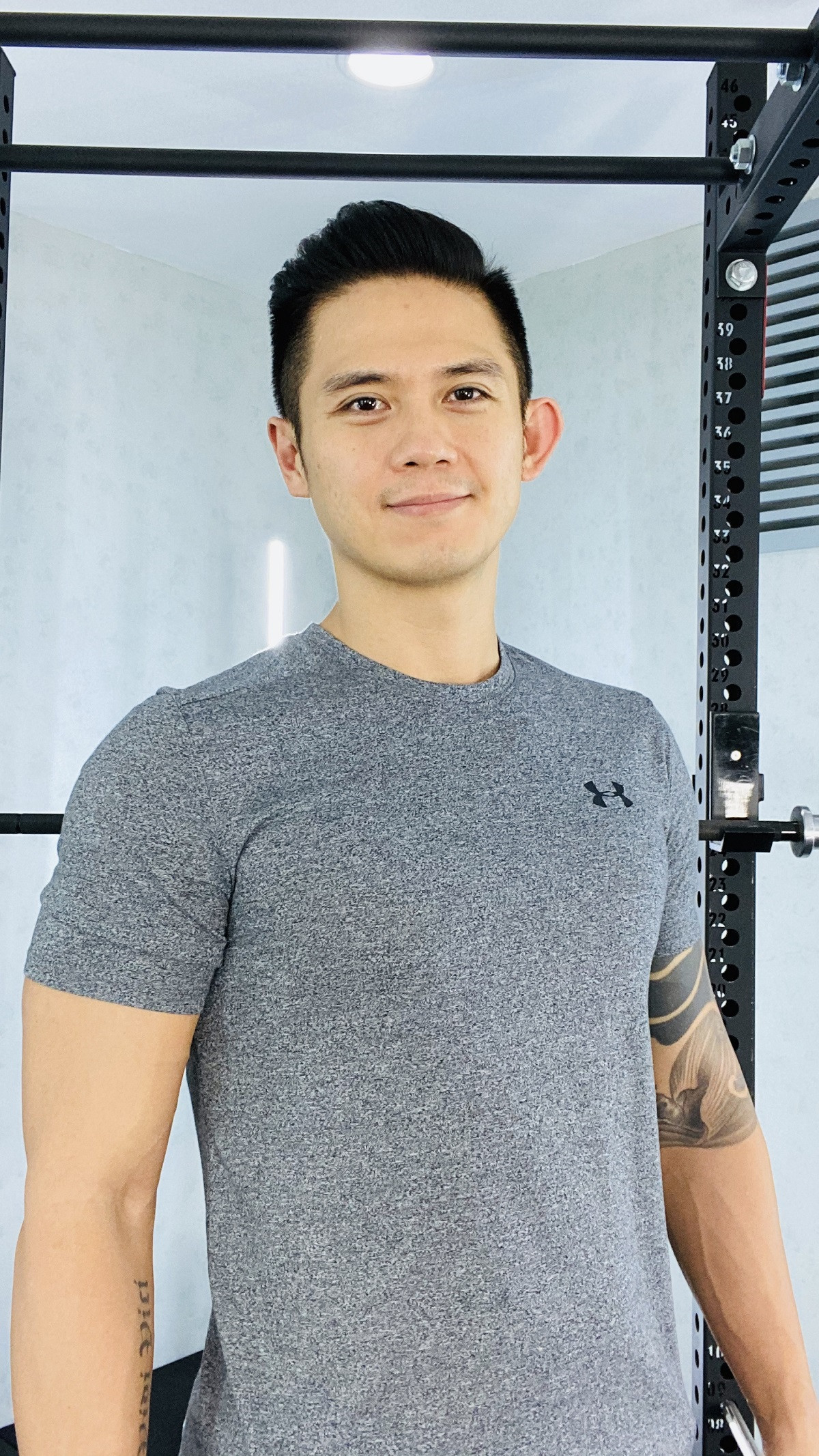Virtually healthy: Fitness coaches and students move to online gyms
As COVID-19 continues, coaches hope that Indonesians wanting to stay fit can see the benefit of online exercises
Change Size
 Fit on the web: Dien Limano is a fitness trainer who has turned his focus online, during the pandemic. (JP/Courtesy of Dien Limano)
Fit on the web: Dien Limano is a fitness trainer who has turned his focus online, during the pandemic. (JP/Courtesy of Dien Limano)
A
s most gyms and public sports fields remain closed, online fitness coaches have learned to develop contactless training techniques they can convey online, in order to stay in the game. While the popularity of social media hashtags such as #olahragadirumah (exercise at home) and accounts such as @workoutdirumah (workout at home) on Instagram - which has 117,000 followers - seem to suggest many have started actively working out at home, this has not translated into signing up for paid-classes online.
Dien Limano, a 36-year-old fitness trainer residing in Surabaya, East Java, is just one of the growing number of fitness coaches forced to turn their services from in-person activities to online.
Dien used to own a gym as a business. It started in 2011 and closed down in 2020 as a result of COVID-19.
“A year before COVID-19 happened [October 2019], my wife Natasya Limano and I [both holding certifications in fitness and nutrition] started to build a community online called Gak Gendut Lagi [not fat anymore].” What started as an extension to their main business has now become their main bread-and-butter.
Along with his wife and a growing team of 70 fitness mentors, Dien now helps moms or women aged 30 to 60 years of age to realize that they can achieve their body goals without the use of supplements and pills. On their Facebook groups, their class provides free and premium instructional videos and meal plans.
Dien said that it was not exactly smooth-sailing, with a lot of Indonesians still wary about online health classes.
“Sure, some of them have turned to technology ever since the start of the pandemic, but many are also becoming very conservative in their spending. On top of that, due to the negative connotation that comes with the word ‘diet’ - people have this assumption that being on a diet means that you will get sick - there are people that are a bit wary of starting any diet programs because of the pandemic.”
There is still some good news.
Read also: Nothing instant: Experts say losing belly fat should be done mindfully
“But in terms of our coaching business, we have been able to grow despite the pandemic, mostly because of word of mouth,” said Dion, summarizing his growing business.
There is also the fact that although online fitness comes with a lot of flexibility, it also has quite a few limitations that make prospective clients feel online classes may not work.
“Depending on what your goal is, if your goal is to build bigger muscle, there are limitations as to how much you can grow them with the limited weights that you have at home,” said Dien.
“But if the goal is for fat loss or to get that lean body, working out at home is more than enough, let’s not forget the hours you can save from commuting, especially in Jakarta.”

Saves money and time
The coaches hope that more people will see the benefits of online fitness classes - in particular in saving money and time.
Tri “Nita” Janita, 40, from Jakarta works in a legal company. She has taken part in two different online coaching programs since the pandemic began.
The first was a once-a-week one-hour yoga class from Blesyoga, which cost Rp 50,000 (US$3.45) per session. The other one was an online weight-training class, which was personalized according to each participant’s conditions, time, habits and goals.
Nita added that the program also provided knowledge about nutrition and diet according to her goals. She spent around Rp 5 million for 12 weeks of training.
Meanwhile, Nurul Hasanah, a 45-year-old housewife living in Amsterdam in the Netherlands, started taking an online coaching program just three months ago during Ramadan.
Nurul took a month-long program because she already had the basic knowledge about regular exercise. The fee was between Rp 400,000 and Rp 2 million.
“They sent me a whole bunch of emails that contained guidance, videos and pictures. And also we had a once-a-week Zoom meeting, sharing about the progress. We could communicate with the coach anytime too via WA and Instagram, and I'm still doing it now, even though my program has ended.”
During the coaching, Nurul and Nita faced several advantages and disadvantages.
Read also: R Fitness launches online exercise classes
For Nita, being focused and disciplined took a lot of will, but she found that the positives weighed more than the struggle. Nita found online coaching saved her time. She used to have to leave her home two hours before commuting to her yoga class, and now only needs 30 minutes to prepare.
Most importantly, she saves money “because you don't need gas, tolls or parking.” Nita said that the money saved could be used for buying better exercise gear.
Nurul concurs. “The advantage of virtual programs is that you can communicate with the coach anytime you have questions. You don't have to spend hours in meetings just to talk about one thing.”
Online classes also make it easier to exercise for those with younger children, since they can stay home and decide on hours where they have fewer parental responsibilities.
After doing the programs for some time, the two women said they found they had a number of benefits.
While both say that they plan on returning to the gym once the pandemic passes, they have grown to see that online classes are a welcome alternative.
“Before online coaching, I was stuck using only 2-3 kilogram dumbbells or bars only, Nurul said, “Since I took part in online coaching, I have been able to use 25 kg dumbbells to 70 kg barbells.”
Dien is confident that business will thrive even after the pandemic ends.
"How do you build a habit for 3 years and revert to your old ways? At the end of the day people do things for the results."
ohmg








